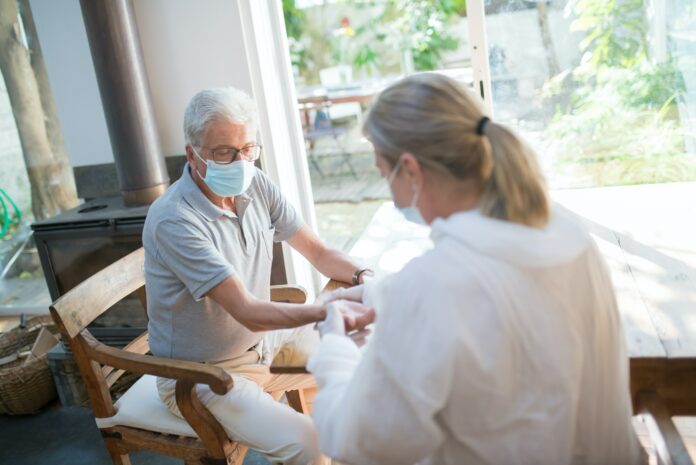As a professional caregiver of older adults, it is crucial to understand their unique challenges. Providing quality care that meets their physical and psychological needs requires understanding elder care principles, effective communication skills, and recognizing signs of physical and mental health problems. It also requires an acknowledgment of the importance of respecting their independence and autonomy while providing them with a safe, comfortable environment to age in.
A professional caregiver must be flexible in their approach, able to respond quickly when unexpected situations arise, and know legal considerations related to caregiving as well as health department guidelines. In northeastern states such as Pennsylvania, specific requirements must be met for a caregiver, and a Pennsylvania caregiver certification might be necessary. This certification ensures that caregivers have received the proper training and meet the state’s standards for providing care. For now, we have compiled eight tips for caring for older adults as professional caregivers.
Create a Care Plan
This should include their medical history, current medications, any allergies, and what type of care they need, for example, assistance with daily tasks such as cooking and cleaning or transportation assistance. Consider whether they will require assistance managing their finances or if other services, such as hospice, may be necessary. Creating a comprehensive care plan helps address all aspects of their needs.
Utilize Community Resources
Many communities offer resources for those caring for older adults including professional caregivers. Look into local meal delivery services, home health aides, transportation options, and respite care options to ensure your client has the best possible care. Additionally, many organizations can provide emotional support and legal advice if needed. Knowing what is available in the community will allow you to utilize the many helpful services available. Furthermore, it is important to be aware of caregiver stress syndrome, which is a result of the physical and emotional stress of caring for an older adult. Caring for an older adult can be a rewarding experience, but it can also be physically and emotionally taxing.
Utilize Technology
With advanced technology, you can easily monitor your client’s health and well-being. Consider investing in apps that monitor vital signs remotely or video conferencing platforms so you can check in on them throughout the day. Encourage the family and friends to stay connected with their loved one through social media and other digital platforms, which makes them feel more connected and less lonely, which is crucial in maintaining good mental health.
Update Your Knowledge of Common Conditions
Aging predisposes most older people to arthritis, diabetes, and heart disease. Staying current on diagnosis and treatment options is crucial to advocate for your client’s needs adequately. Also, investigate potential remedies to improve their quality of life, such as adding specific supplements or medications to their regimen. Knowing the signs and symptoms of these common conditions can also help you quickly identify potential problems and promptly get your client the care they need.
Upgrading your Bachelor of Science in Nursing Adult-gerontology primary care nurse practitioner (AGPCNP) to a Doctor of Nursing Practice (DNP) can also help you gain the expertise and understanding needed to provide proper elderly care. With thorough research, you can find a doctorate AGPCNP program available to South Carolinians, then search for a reputable institution to complete the requirements. With a part-time program, you can learn while continuing to provide care.
Make Sleep a Priority
People need more restful sleep to stay healthy and alert during the day as they age. However, insomnia is common among seniors due to chronic pain or illnesses such as Alzheimer’s Disease. Advice for comfortable beds or mattresses specifically designed for elderly individuals can help them get better sleep quality, which will benefit their overall health and well-being.
Ensuring the linens are clean and comfortable and the dark and quiet bedroom can also help them sleep better. You can also encourage them to practice relaxation techniques such as deep breathing or progressive muscle relaxation before bed.
Maintain a Healthy Diet
Eating nutrient-rich meals will help keep their energy levels up and boost their immune system. Please encourage them to eat various fruits, vegetables, and lean proteins. Encourage them to drink more water and limit processed foods. It’s also essential to offer a variety of flavors and textures so they can enjoy their meals.
Establish Routines and Stick to Them
Establishing routines helps keep elderly individuals feeling secure by providing structure throughout the day. This is especially important if they have dementia or Alzheimer’s Disease, as it provides comfort when their memories begin to fade away with age and illness progression.
Keep meals at regular times each day and schedule activities like walking around the block at certain intervals throughout the week. Hence, they know what to expect each day which can help reduce stress levels significantly.
Understand the Rights of Older Adults
All individuals have certain rights regardless of age or disability status. You must understand your client’s rights and help them understand them, which ensures they are treated with the respect and dignity they deserve while protecting them from any potential abuse or exploitation.
It’s crucial to know what services are available to them. For example, some states offer Medicaid assistance for qualified seniors, so it’s beneficial to research this topic. Potential abuse or exploitation can cover anything from physical to financial areas of their lives. In case you notice signs of abuse or neglect while caring for your client, you should immediately report the incident to local authorities.
Caring for an older adult can be a challenging yet rewarding experience. Having the knowledge of properly taking care of your client’s physical, emotional, and financial needs will ensure they can live a comfortable life, even as they age. Following the tips above can help you provide the best care possible for your elderly patients, allowing them to live their lives with dignity and independence.


